Ayurvedic
The Best Ayurvedic Herbs for Dry Cough
Home Remedies for Dry Cough, Types and Symptoms:
Home remedies for dry cough – Dry Cough in Ayurveda is known as ‘Shushka Shwasa’, and it is a very common ailment nowadays, especially in cities. But, there are multiple herbs for dry cough available in Ayurveda which is very useful in acute as well as chronic cough.
This mainly occurs when allergens or pollutants in the environment enter your throat pipe, airways, or lungs and trigger your body to cough them out. Sometimes this natural reflex causes inflammation of the respiratory tract and throat.
A person can experience some signs and symptoms such as frequent dry cough, sputum production, irritability, dryness in the mouth, sore throat, tiredness, difficulty in swallowing food.
‘Kasa’ term is used for cough in Ayurveda. It is a condition when Prana Vayu is obstructed due to some causative agents. Regular intake of causative factors will affect the movements of Vayu and produces different sounds.
There are mainly five types of Kasa mentioned in Ayurveda named as Vataj, Pittaj, Kaphaja, Kshataja, and Kshayaja.
According to the Ayurveda, the Respiratory system is governed by Prana Vayu and Udana Vayu and if a person suffering from a dry cough then it is termed as ‘Vataja Kasa’.
Causative Factors of Vataja Kasa Are Given Below:
- Pramitashana (food intake in less quantity)
- Stree vegadharana (excess indulgence in sexual activities)
- Aayasa (excessive physical strain)
- Ruksha sheeta kashatya anna sevan (intake of excess cold, astringent food)
- Vegadharana (suppression of natural urges)
- Dhooma (smoke, smokers cough)
- Diwaswapana (daytime sleeping)
- Raja (dust)
- Ativyayama (excess exercise, beyond your capacity)
- Langhan (fasting)
Signs and Symptoms of Vataja Kasa:
- Swara bheda (excess hoarseness of voice)
- Hrushtalomnah (fainting)
- Hrit parshva uru shira shula (pain occur in the cardiac region, sides of the chest, mild headache)
- Daurbalya (weakness)
- Nirghosha dainyastanana (hollow sound occurs during coughing)
- Kapham sushka (semi-solid phlegm comes out with pain)
- Urdhava vata jirne anna (upward movement of vayu)
- Snigdh amla lavana bhukta (cough gets aggravated by sour, saline, unctuous food and drinks)
Ayurvedic Classical Medicines for Dry Cough:
Ayurvedic Acharyas suggest some of the classical medicines that cure the dry cough naturally such as Kantakari avaleha, Chandramrit rasa, Sameerpannaga rasa, Pipplayadi ghrita, Rasna ghrita, Talshadi churna, Kantakari ghrita, etc.
Also, there are some procedures mentioned in the Ayurveda texts that are very beneficial to overcome the symptoms and make the respiratory system so strong that a person can easily fight seasonal ailments. The most common and effective procedures are given below:
- A person can do Abhyanga on the chest to bring dosha’s to the koshta
- Apply sesame oil on the chest, upper back, and the neck
- Apply hot fermentation by a placed wet towel or erand patra closed to the chest
- Do practice of Anulomana
- Do Snaihik dhoompana
Best Home Remedies for Dry Cough:
Home remedies for dry cough – To deal with seasonal ailments and common infections it is better to adopt simple and natural home remedies, instead of taking chemical-based medicines. Here we described the best Ayurvedic herbs for dry cough which are easily available and can be used by every person in day-to-day life. Some of the best herbs and their home remedies for dry cough are mentioned below:
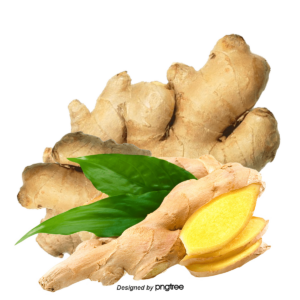 Ginger:
Ginger:
Ginger is well-known home remedy for dry cough that works very effectively to suppress a dry cough as it is loaded with anti-inflammatory, anti-viral, anti-microbial, anti-bacterial, anti-oxidant properties that soothe the passage of the throat, eliminates toxins of the infection and flu, reduces congestion, inflammation, boost the immune system, inhibit pathogens that cause sore throat, dry cough, etc.
How to use:
Crush the fresh ginger, put a cup of water in it, and bring it to a boil. To make it tastier a person can also add some lemon juice and honey in it. Drink this herbal remedy once daily to get relief from congestion, coughing, sore throat, etc.
Or, a person can also chew one fresh raw ginger daily or on alternate days.
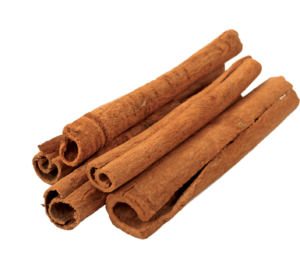 Cinnamon:
Cinnamon:
Cinnamon is considered the best home remedy for dry cough as it is loaded with high amounts of anti-oxidant, anti-inflammatory, anti-bacterial, anti-microbial, anti-viral properties that can fight the virus which causes cough, cold, sore throat, headache, etc. Additionally, it supports healthy respiration, purifies the blood, helps in proper digestion, and eliminates toxins from the respiratory tract.
How to use:
Mix a small quantity of cinnamon with honey and take one teaspoonful every day to reduce the attack of cough. Or, a person can make a fine powder of cinnamon stick and consume it with normal water daily.
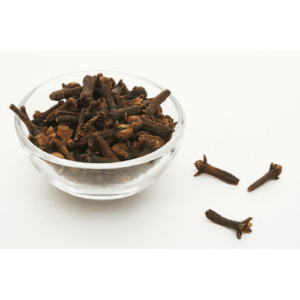 Cloves:
Cloves:
Cloves are very beneficial to deal with all respiratory problems due to its wonderful medicinal properties. Cloves work as the best herbs for dry cough that are enriched with antiseptic, antiviral, antimicrobial, anti-inflammatory properties that help to heal sore throats, cold, cough, headache, heaviness, etc. Also, it acts as a natural expectorant because essentials oil is present in it that clears the obstruction even from the deep tissues and clearing the respiratory passage.
How to use:
Mix a small amount of clove and rock salt, chew it thoroughly to ease down the soreness and irritation of the throat.
Also, it can be mix with honey and take once daily.
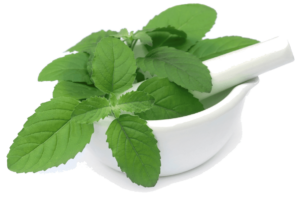 Tulsi:
Tulsi:
Tulsi is one of the best home remedies for dry cough that balance Kapha dosha and relieves the excess amount of sputum and clear the obstructed channels. It acts as an anti-microbial, anti-viral, immune-boosting herb that prevents a person from seasonal ailments and other common infections. Tulsi leaves can fight off a range of infections, including cold, cough, congestion, headache, etc.
Also, it improves taste and relieves a lack of appetite by stimulating the digestive fire due to its wonderful medicinal properties.
How to use:
To get rid of cold and cough, a person can take one cup of water and add 3-4 tulsi leaves and a small piece of ginger. Boil this herbal mixture over low heat till the quantity comes down to half. Drink this amazing herbal twice daily to get it wonderful benefits.
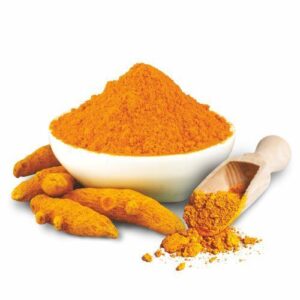 Turmeric:
Turmeric:
Turmeric is well-known herb for dry cough due to its anti-inflammatory, antiseptic, and immune-boosting properties. It clears nasal passage by eliminates accumulated toxins, alleviates chest congestion, soothing cough by getting rid of phlegm, increases mucus production which naturally flushes out microbes that clog with the respiratory tract.
Also, it boosts the immune system and prevents a person from seasonal ailments and other common infections.
How to use:
A person can add equal amounts of turmeric powder and black pepper in a boiling half cup of water. To make it more effective and delicious we can also add a pinch of cinnamon powder in it. Boil this herbal solution for about two to three minutes and drink it daily until the condition improves.
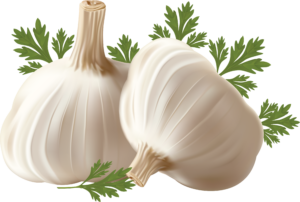 Garlic:
Garlic:
Garlic is one of the natural home remedies for dry cough that fend off various seasonal ailments. Due to its Ushna properties, it helps to reduce aggravated Kapha and expel out accumulated mucus from the respiratory tract. It is used as a cough remedy for ages due to its anti-bacterial, anti-microbial properties.
Also, it helps in healing and soothing the throat and prevents a person from various harmful infections.
How to use:
Boil a clove of garlic with one glass of milk and add a pinch of turmeric to it. Drink this effective remedy once daily to overcome the symptoms of cough, cold, sinusitis, etc.
Crush 2-3 pieces of garlic and add a few amounts of honey in it. Take the remedy once daily to get its amazing results.
Additionally, a person has to take care of diet and other lifestyle activities. An individual who suffers from chronic cough and cold can take the following diet in their daily life, i.e. Aged rice, Wheat, Green pulses, Fenugreek, Cardamom, Garlic, Dry Ginger, Piper longum, Bottle gourd, Carrot, Brinjal, Honey, etc. And avoid or reduce the amount of heavy, fermented, deep-fried foods, curd, sweets, potatoes, banana, cold water, smoking, day sleep, and other cough aggravating products.
Ayurvedic Formulations of Herbs for Dry Cough from DEEP AYURVEDA:
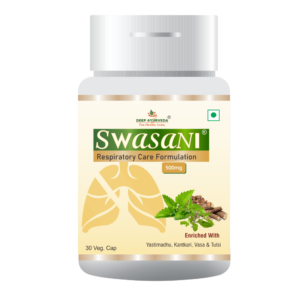 Swasani Herbal Capsule:
Swasani Herbal Capsule:
This is one of the amazing Respiratory Care Formulations that deals with all the ailments of the respiratory tract like the common cold, cough, fever, asthma, sinusitis, etc. The capsule is made up of natural, authenticated, pure herbs that are proved in ancient times to balance the Kapha dosha and relieves all the symptoms.
The capsule is a combination of herbs like kantkari, anantmool, shirish, bharangi, vasa, tulsi, pippali, etc, that works as an expectorant, anti-inflammatory, anti-viral, anti-bacterial, anti-microbial, immune-boosting, etc and provide multiple health benefits to a person and also prevent them from various infections.
The formulation of swasani herbal capsule is done by experienced Doctors and all the products are free from chemicals, adulteration, preservatives, etc. These are safe to use and don’t cause any side effects to a person.
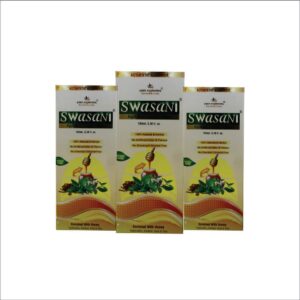 Swasani Ayurvedic Liquid Tonic:
Swasani Ayurvedic Liquid Tonic:
This formulation is mainly made for children and those who are not comfortable taking the medicine in a capsule form. The ingredients used in the formulations of Swasani Ayurvedic liquid tonic are the best herbs for dry cough and it is easy to use and result-oriented medicine. It can be used to cure chronic or severe conditions of cough, cold, allergic rhinitis, headache, asthma, seasonal ailments, etc.
For more detail on Herbs for Dry Cough, please visit our nearest clinic or if you want to consult with our Chief Ayurveda Consultant & Founder – Dr.Baldeep Kour then write with detailed history at info@deepayurveda.com
For regular health updates, please follow our Social Pages


